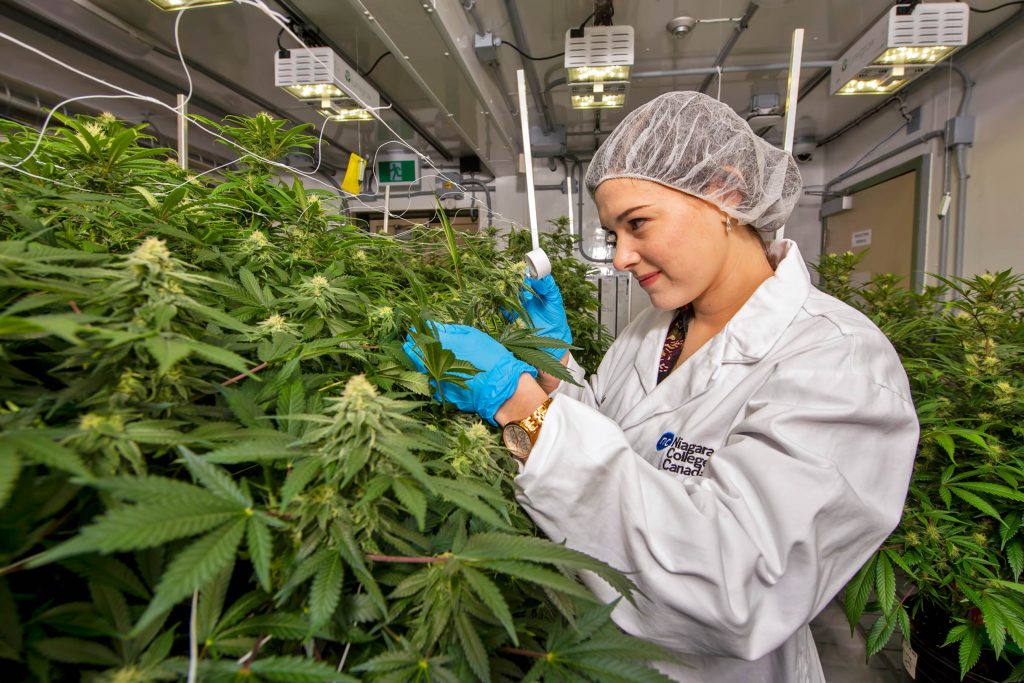Cannabis Education in Canada: Preparing for the Future of the Industry

As the legal cannabis industry continues to grow in Canada, so does the need for comprehensive and accurate education on the subject. Canadian educational institutions are stepping up to meet this demand, providing students with knowledge on both the consumption and the business side of cannabis.
The Need for Cannabis Education

With the legalization of cannabis in 2018, Canada has become a pioneer in shaping policies and attitudes towards cannabis use and business1. This has created a demand for educated professionals who understand the complexities of the cannabis industry. This includes not only understanding the plant and its effects but also the legal, business, and social aspects of the industry.
Cannabis Education in Schools
The legalization of cannabis has also necessitated changes in how schools educate students about drug use. This includes comprehensive education about the potential risks and benefits of cannabis use, as well as understanding the laws around cannabis consumption.
In 2019, the Canadian government launched the “Cannabis Talk Kit” to guide conversations about cannabis between parents and teenagers. Some provinces, like Ontario, have also incorporated cannabis education into their school curriculum, aiming to provide students with factual information to make informed decisions3.
University Courses on Cannabis
As the industry continues to evolve, Canadian universities are offering specialized courses on cannabis. These courses are aimed at individuals interested in joining the cannabis industry or those seeking to enhance their knowledge about this rapidly growing sector.
For example, the University of British Columbia offers a course titled “Introduction to Professional Management of Marijuana for Medical Purposes in Canada”. This course covers everything from the basics of cannabis to its therapeutic applications, commercial production, and legal framework4.
Ryerson University also offers “The Business of Cannabis” course, which provides an in-depth look into the entrepreneurial side of the cannabis industry, covering topics such as marketing, sales, finance, and law5.
Cannabis Industry Training Programs
In addition to university courses, there are numerous training programs designed specifically to prepare individuals for careers in the cannabis industry. For instance, Kwantlen Polytechnic University offers a suite of online courses covering topics such as cannabis cultivation, marketing, and sales.
The Future of Cannabis Education in Canada
The cannabis industry in Canada is still in its early stages, and as it continues to evolve, so too will the educational programs that support it. The focus is shifting from mere awareness about cannabis to in-depth knowledge and professional skills related to the industry.
It’s clear that Canada is taking a comprehensive approach to cannabis education, preparing its population not only to be informed consumers but also to be part of an innovative and growing industry. As the demand for cannabis education continues to grow, it will be exciting to see how the field evolves and helps shape the future of the Canadian cannabis industry.
Opportunities for Research in Cannabis
The legalization of cannabis in Canada has opened up a wealth of opportunities for academic research. Universities across the country are delving into a multitude of aspects surrounding cannabis, from the impact of its legalization on society to the plant’s potential medicinal benefits.
The University of Calgary, for example, has created the Cannabis Research Initiative. This program is dedicated to conducting comprehensive studies on the health impacts of cannabis use, contributing to the evolving body of knowledge in this field1.
Cannabis Certification Programs
Beyond degree programs and individual courses, certification programs focused on cannabis have started to emerge. These programs are designed to provide a comprehensive understanding of the cannabis industry and are often tailored towards specific career paths.
Niagara College in Ontario offers a one-year Commercial Cannabis Production Graduate Certificate, which is the first post-secondary credential in the country focused on the production of commercial cannabis. The program covers all aspects of the industry, including plant nutrition, environment, lighting, climate control, and pest control2.
Cannabis Education for Healthcare Professionals
Given the increasing use of medical cannabis, there’s a growing need for healthcare professionals to be knowledgeable about its uses, benefits, and potential risks. Some institutions, like the Canadian Consortium for the Investigation of Cannabinoids (CCIC), offer training and resources for doctors and other healthcare professionals to better understand and navigate the use of cannabis in treatment plans3.
The Impact of Cannabis Education
The expansion of cannabis education in Canada is already having an impact. By promoting a better understanding of cannabis, these programs are helping to destigmatize its use, support responsible consumption, and ensure a skilled workforce for the growing industry.
Moreover, with a focus on research and evidence-based learning, Canadian educational institutions are contributing to the global understanding of cannabis. As more countries consider legalizing cannabis, they may look to Canada’s experience and educational approach as a model.
Conclusion
The cannabis industry in Canada is more than just a business; it’s a complex field that intersects with law, health, and society. As the industry continues to grow, so does the need for comprehensive cannabis education. Canadian schools and universities are rising to the challenge, ensuring that students and professionals alike are prepared for the future of the industry. As Canada continues to lead in this space, it will be exciting to see how education and research continue to evolve and shape the world of cannabis.
As always, remember to stay informed and up-to-date with the latest in cannabis education and policies. The landscape of the industry continues to change rapidly, and being knowledgeable is key to navigating it successfully.















